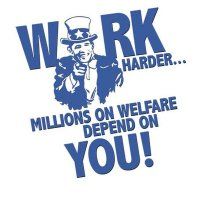Random thoughts. Any feedback would be much appreciated.
What's the exact equation to determine how much SS someone receives? What I believe I do know is that early retirement begins at age 62, full retirement at 67. One who chooses early retirement at 62 gets about 80% benefits. From there to 67, I imagine it's a sliding scale. One also needs at least 40 credits to collect. You can get a maximum of four credits per year, one per quarter, and need to only make $890 per quarter to get said credit. 6.2% of one's paycheck goes to SS but only on up to $90,000 of taxable income. How much of this am I wrong on? Any of it? Am I forgetting anything important?
What percentage of people retire early, between the ages of 62 and 66? I ask because I see that as a problem, somewhat at least. As our system stands now, if I'm understanding it correctly, someone who retires at 67 and gets paid in full at $1,000 (hypothetical number) a month, will receive $144,000 (ignoring interest/inflation for argument's sake) over their remaining years, up until their death at 79, the average age of death for Americans right now.
If someone retires early though, at age 62, and thus receives only 80% of full (the number I've seen thrown around for penalty), or $800 a month, up until the age of 79, they've received $163,200, while contributing less into the system as they retired five years early. Sure, they didn't really make more, because they did not have a job from the age of 62-67 but the fact is, if I'm understanding it correctly, more money is sucked from the SS funds despite the fact they contributed less. Big problem imo.
A bigger problem is how little the full retirement age has gone up over the years despite the huge increase in average life expectancy. Life expectancy has skyrocketed over the last 75 years yet the full retirement age for SS has not. Just plain silly imo.
If I'm fixing this issue, I:
*Raise early retirement age from 62 to 66, with a greater penalty for collecting early. Currently, one can retire at 62 and collect about 80% of their benefits. I'd lower that figure to about 75% (at new early retirement age of 66), and and have a sliding scale where it goes up (75% at 67, 80%% at 68, 88% at 69, 100% at 70)...this should do a few things...obviously, it will push back paying any SS by three years. Much more will go into the system, less will come out, at least compared to our current model. It will also pushes the full retirement age back three more years, to 70, a number quite frankly that sounds scary. And at a certain point, people are gonna say **** it, I'm not working any more. It just doesn't make sense. I've worked a few more years than everyone else did in the past when they retired early at 62, and thus have more saved up. I don't need to. I'm outta here at 66. 75% of my bennies is just fine, considering how much more I've saved over the last four years of employment, as compared to had I been able to retire early based on the old age of 62.
*Raise full retirement age from 67 to 70. This does two things. It lessens the gap between early retirement and full to four years from the five it currently sits at. It raises the full retirement age three years from 67 to 70. I see this as a great way to get a much greater number of people to retire early. Very few people want to work so close to death, unable to see their grandkids and kids mature, unable to enjoy their own twilight years. In my opinion of course. Another three years of employment, at that age, is a long effing time. The same sentiment as the previous paragraph stands here that I think more people would retire early.
If they don't, and work toward 70 more than before, then only nine years (based on life expectancy) of SS is paid out, as compared to 12 years before. If they retire early, well, let's see.
In this scenario, at $1,000/month, one who retired at 70 would make $108,000 over the last nine years of their life.
Someone who retired early at 69 (85%) would make $102,000.
Someone who retired early at 68 (80%) would make $105,600.
Someone who retired early at 67 (75%) would make $108,000.
The amount they collect over the course of their remaining years, til 79, is no greater if they retire early or later. Now, quite obviously, if someone's worked 48 years instead of 45, at what is essentially the same salary over the last few years, they probably both don't get $1,000 a month. However, the difference would be nominal. Instead of $1,000, they may collect $1,065 or so.
Let me continue.
*Raise the number of credits from 40 to a much higher, yet attainable, figure of 100. To earn 40 credits, one simply needs to work 10 years--but not even on a full-time basis. They simply earned one credit for each quarter in which they earned $890. That's ludicrous. A stay at home mom could make this no problem on the side. A woman working at McDonalds can also make this working about 30 hours a week. I don't think that's too much to ask.
*I raise the amount we contribute per paycheck to a little greater percentage than 6.2% (7.25%) but keep the cap on employer contribution at the current figure.
*Lower the amount we get upon retirement by about 5%--from $1,000 to $950 in my scenario.
Let the flaming begin. I'm sure I've screwed up something, maybe a lot here, but these are my initial quick thoughts.

